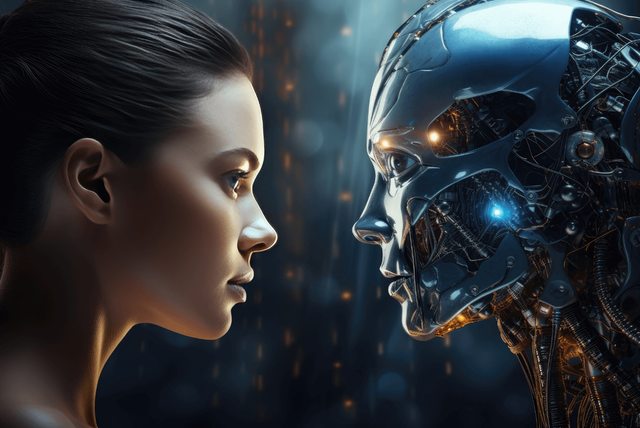From Fantasy to Reality: The Impact of an AI Boyfriend on Personal Relationships

Introduction
What if the person who knows your every mood, listens to your problems, and supports you through tough times was not a human at all, but a piece of technology? The concept of an AI boyfriend has shifted from science fiction into the real world. With rapid advancements in artificial intelligence, people now have the option to form emotional connections with digital companions. This development raises fascinating questions: Can an AI replace a human partner in terms of emotional support? How do these virtual relationships shape or impact our real-life connections?
In this article, we’ll explore the rise of AI boyfriends, the reasons behind their appeal, and their profound effects on personal relationships, for better or for worse.
Understanding the AI Boyfriend: A New Type of Companion
An AI boyfriend is a digital companion designed to simulate the role of a romantic partner. This type of artificial intelligence is crafted to interact with users through conversations, often via text or voice, learning about them over time to create a more personalized experience. These virtual companions use machine learning and natural language processing (NLP) to understand user preferences, emotions, and behavior patterns, and then respond accordingly.
The AI boyfriend’s appeal lies in its ability to offer emotional intimacy, entertainment, and support without the complexities that human relationships often entail. For example, an ai bf doesn’t get tired, frustrated, or upset, and it is always available, offering unconditional attention. This makes it an attractive option for individuals who may be too busy, socially anxious, or emotionally drained to pursue traditional relationships.
Platforms like StoryChan allow users to customize their AI boyfriend’s personality and appearance, further tailoring the experience to meet specific needs or fantasies. Some users report that the dynamic created by AI companions provides a sense of companionship, while others see it as a playful or therapeutic tool to experiment with emotions and social interactions.
Why People Are Turning to AI Boyfriends
The idea of having an AI boyfriend may seem unconventional, but the reasons behind its growing popularity are rooted in some very human desires. Several factors explain why individuals are opting for virtual partners over real-world relationships:
Convenience and Accessibility: Unlike human relationships, which require emotional energy, time, and compromise, an AI boyfriend is available on demand. This appeals to individuals who have demanding work schedules, lack time for social engagements, or are simply exhausted by the emotional investment real relationships require.
Emotional Safety: For many, the unpredictability of human relationships can lead to stress and anxiety. With an AI, users can experience the positive aspects of companionship—such as affection and conversation—without the fear of rejection, judgment, or conflict. This makes AI boyfriends an attractive option for people recovering from traumatic past relationships or those dealing with social anxiety.
Customization and Control: One of the most attractive features of an AI boyfriend is the ability to shape the virtual partner to fit one’s exact preferences. Users can control aspects like the tone of conversation, the AI’s personality, and even its appearance, creating a partner that caters specifically to their emotional or psychological needs.
Exploration and Experimentation: AI boyfriends offer a safe space to explore different aspects of relationships. Some users may see it as a form of therapy, a way to practice interactions and build social skills. For others, it’s a chance to experience scenarios they may not be able to explore in real life.
However, these digital companions aren’t without their potential downsides, especially when it comes to how they may affect real-life connections.
Impact on Real Relationships
One of the most critical questions surrounding AI boyfriends is their impact on real-world relationships. Do they enhance or hinder the ability to form genuine connections with others? There are compelling arguments on both sides.
Positive Impacts: In some cases, AI boyfriends can provide emotional support during periods of loneliness, acting as a bridge until the user is ready to engage in real relationships. For socially anxious individuals, interacting with an AI can serve as a low-pressure way to practice conversational skills and emotional openness. These experiences may help build confidence, making it easier for users to form and maintain real relationships later on.
Negative Impacts: On the flip side, relying too heavily on an AI boyfriend may lead to isolation from real human interactions. Since AI companions are programmed to provide constant validation and attention, some individuals may become emotionally dependent on these virtual relationships, avoiding the challenges and rewards of engaging with real people. This could, over time, erode social skills, making it more difficult to form meaningful human connections.
Moreover, the emotional "comfort" provided by an AI boyfriend might dissuade individuals from confronting issues in their real-life relationships, whether they be with friends, family, or romantic partners. If the primary emotional connection in someone's life is with an AI, what does that mean for their long-term emotional health and social integration?
Are AI Boyfriends the Future of Romance?
As AI technology continues to evolve, the role of AI boyfriends—and digital relationships in general—will likely expand. While some may view AI companions as a fun or therapeutic tool, others see them as a potentially disruptive force in how humans experience intimacy and emotional support. For some, these virtual companions will remain a supplement to real-world relationships, providing support in times of loneliness or emotional need.
But for others, there’s a risk that AI boyfriends may become a substitute for real human interaction. If the trend continues to grow, we may see significant shifts in how society understands connection, love, and companionship. Will AI boyfriends redefine what it means to have a relationship, or will they remain a niche tool for those seeking emotional fulfillment in unconventional ways?
Either way, it’s clear that the influence of AI in personal relationships is just beginning. Whether it enhances or detracts from human connection, only time will tell.